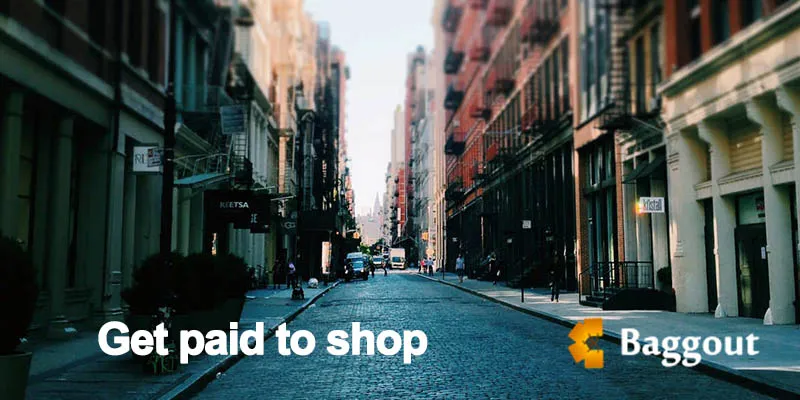IITian-IIMite bets on social shopping with Baggout
Now, let's admit it. All of us have turned into online shoppers. You could be a newbie picking up a book here and a shoe there or maybe you bought everything from the bed you sleep in to the diamond on your fingers online. We are all in it together and a good deal – nice fat discount on a great product – can make our eyes sparkle. That is what Baggout is up to. They help you and me spot that deal across all the big online retailers – Amazon, Flipkart, Myntra, Snapdeal, Jabong, HomeShop18, Yepme, Fernspetals … they are all on Baggout.

Product aggregation isn't new in India – Junglee is an example – but Baggout has an extra attraction: cashback. Many of the deals showcased on Baggout have a cashback component in addition to the discount offered on the retailer's site. For this, you have to go to the retailer's site via Baggout and punch in the associated cashback coupon code, if there is one. Baggout also tracks your purchases automatically and adds the cashback into your account.

“We operate on an affiliate model and pass on a majority of the commission to our users,” explains Deepak Jain, Co-founder & CEO of Baggout. An alumnus of IIT Roorkee and IIM Ahmedabad, Deepak started Baggout with his school friend, Prashant Mahajan, who is also the CTO of this Delhi-based startup.
Social shopping, anyone?
On the Baggout site, users can browse through a personalized product stream based on what their friends and other Baggout users seem to like and buy. They can, of course, search for specific products as well. Each product has a “Buy button” which takes you to the retailer and a “Like Button” which saves it in your profile to view later. “We provide a social layer over the product aggregation. In offline shopping, the social angle is highly prevalent, and that is what we want to bring online,” says Deepak.
Initially, they toyed with the idea of users also sharing details about their offline purchases with friends. They did an extensive market research on this, including surveys in malls, online groups and detailed interviews with online shoppers. “The research showed that people found sharing offline purchases a tedious task as they needed to take pictures and key in the product name, price and a number of other details. They saw value in the proposition but they wanted it to be a single click, so we decided to focus only on online purchases wherein sharing can be done in a single click,” Deepak says.

After getting a feel for what would work, Deepak and Prashant started to develop the product in January 2013 and launched it on 24 May 2013. “Prashant did it single-handed,” Deepak says.
The cashback proposition
Initially, Deepak and Prashant were laser-focused on social commerce. “We tried evangelizing the concept of social shopping but it was difficult as it is completely intangible. We, therefore, introduced cashback to give users a more tangible value proposition on our site.” Cashback on the platform was the significant milestone which gave them the first avenue to generate strong traffic.
They partnered with a number of players in the mobile recharge, free SMS and bus ticketing space to distribute their cashback coupons. Last month, they relaunched their product pages which soon enough gave them traction on the social commerce side of the business. “Now, we have started getting 4000-5000 visitors a day which is growing at a fast pace. Just a couple of weeks back, it was 3000-4000,” Deepak says.
“Our bigger value addition is in terms of helping the user discover great products through the social layer we are building over product aggregation,” he says.
Ecommerce evolution
Currently in India, the ecommerce space itself is evolving. With Amazon India building traction rapidly, Flipkart, Myntra and others are moving to hybrid models like online marketplace. Such a model allows small vendors to list their products on marketplaces and also operate their own websites.
Where does Baggout figure in this evolution? “All these models would see a huge value in an affiliate marketing model like ours. We are already tied up with all the major players and are in the process of tying up with small players which would be in tens of thousands,” says Deepak.
Baggout will continue its product iteration in sync with the evolving market. “But we believe that it will be incremental rather than disruptive,” Deepak says.
Deepak and Prashant have bootstrapped Baggout, financing it from their personal savings. They have reached their current stage with minimal investment in marketing. Now, the aim is to scale the traffic to 25,000 daily visitors. They plan to start talking to investors very soon. Their vision is to be a shopping search engine “wherein the consumer’s journey of online shopping starts with Baggout”.
What is your take on the affiliate model for online shopping? Let us know in the comments below.







